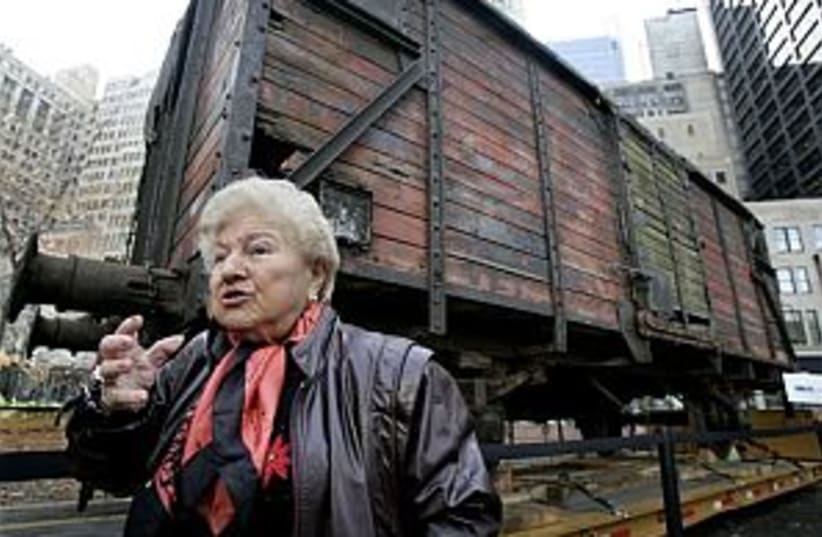| More about: | Czechoslovakia, Germany, Chicago, Skokie, Illinois |
Holocaust survivors unveil railroad car for US museum
"It may be this many years later but the smell and the fear that was in that box car, that has not left me."


| More about: | Czechoslovakia, Germany, Chicago, Skokie, Illinois |